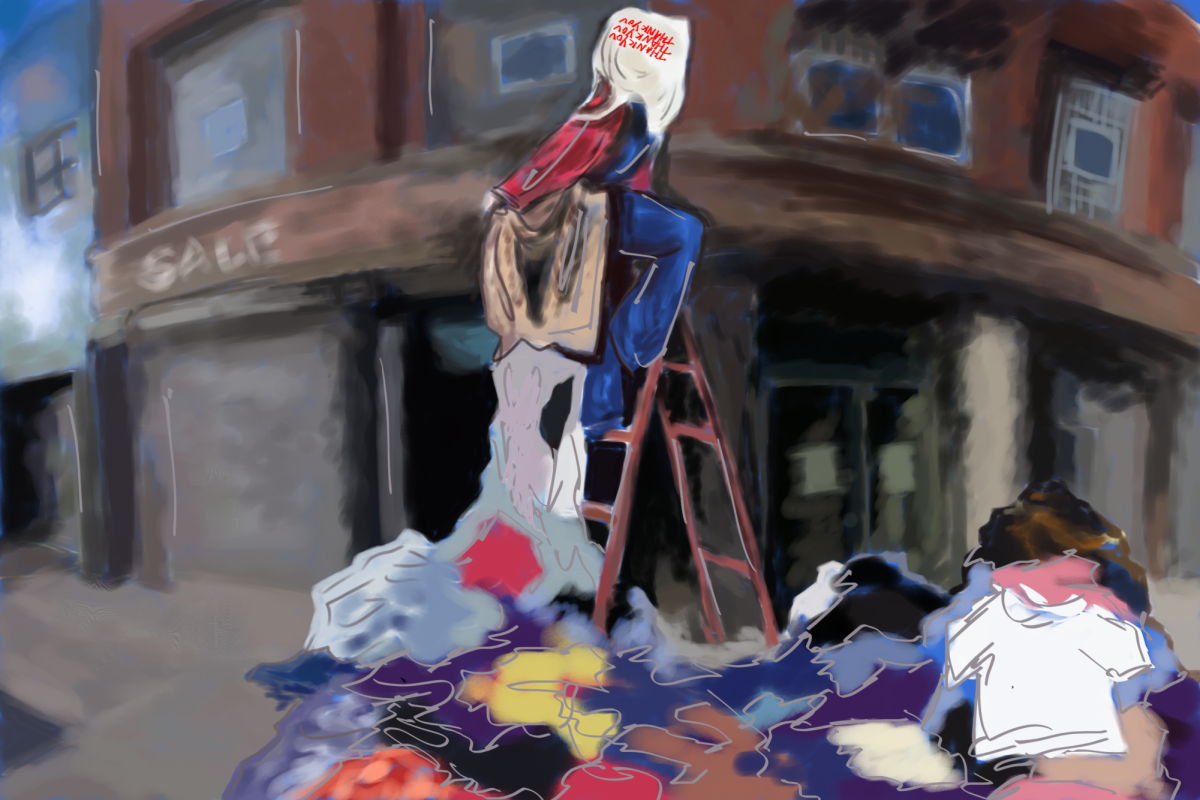College is a time with many different social and academic opportunities. From dinner with friends to professional interviews, it seems like we need a new outfit for every occasion. Fashion trends are constantly changing, and college students who are exposed to these new styles often feel a constant pressure to keep up. This pressure, combined with a limited budget, leads students to become targets for the fast fashion industry.
A reported 72% of college students bought from fast fashion brands in 2022. While these brands provide cheap and convenient options for college students, they pose serious threats to their workers and the environment.
The manufacturers responsible for these issues produce in excess to meet the demands of consumers. Therefore, the only solution to this cycle of materialism is for buyers to be conscious about their participation in the fashion industry.
Trash to Treasure is a student-led project a part of the Campus Environmental Center that encourages students to shop sustainably through clothing drives and affordable thrift sales. Sora Ahmad, Trash to Treasure operations assistant and textiles and apparel and communications and leadership sophomore, explained the issues with clothing manufacturing.
“A lot of the ways that our clothes are made are unsustainable based on the colors that are used to dye it and the people that make the garments themselves,” Ahmad said. “Fashion is the second biggest polluting industry in the world. It’s right behind oil.”
Ahmad said that the rise of fast fashion, which occurred within the last 20 years, has increased the pace of trend circulation from years to months, and sometimes even weeks. This change results in overconsumption and drastically increases clothing waste. The industry currently releases around 1.2 billion tons of carbon every year.
“It really has perpetuated the culture of continuing to buy and buy as fast and as much as possible,” Ahmad said.
The dramatic increase of clothing production not only harms the environment, it also leads to the inhumane treatment of workers.
“A lot of the clothes that we consume aren’t actually made domestically, they’re made overseas,” said Haya Prasla, a junior biochemistry major and Trash to Treasure co-lead. “Oftentimes, it’s because big corporations and companies are exploiting the work of these people and not paying them enough and on top of that, they’re working in really unsafe conditions.”
Ahmad referred to the infamous Rana Plaza Collapse in Bangladesh in 2013, which killed 1,134 workers, as one such example.
“These types of accidents happen every single year,” Ahmad said. “In Bangladesh, in the Philippines, in India and in Africa.”
Instead of over purchasing from websites with cheap, mass-produced clothes, students should look for fewer, higher quality wardrobe items. A simple change in shopping choices can help shift support away from companies who exploit their workers in favor of more ethical brands, or practices.
“When you’re buying clothes, you should invest in them,” Ahmad said.
By shopping sustainably and remaining cognisant of the impact the industry can have, college students can mitigate the dangers of fast fashion. This includes buying less, researching clothing brands before purchasing and shopping secondhand.
The issues that come with the rise of fast fashion expose the need for balance between staying trendy and being socially responsible. By being conscious about their purchases, students can promote sustainability and create meaningful changes in the industry.
Ava Saunders is a journalism and government freshman from Wheaton, Illinois















